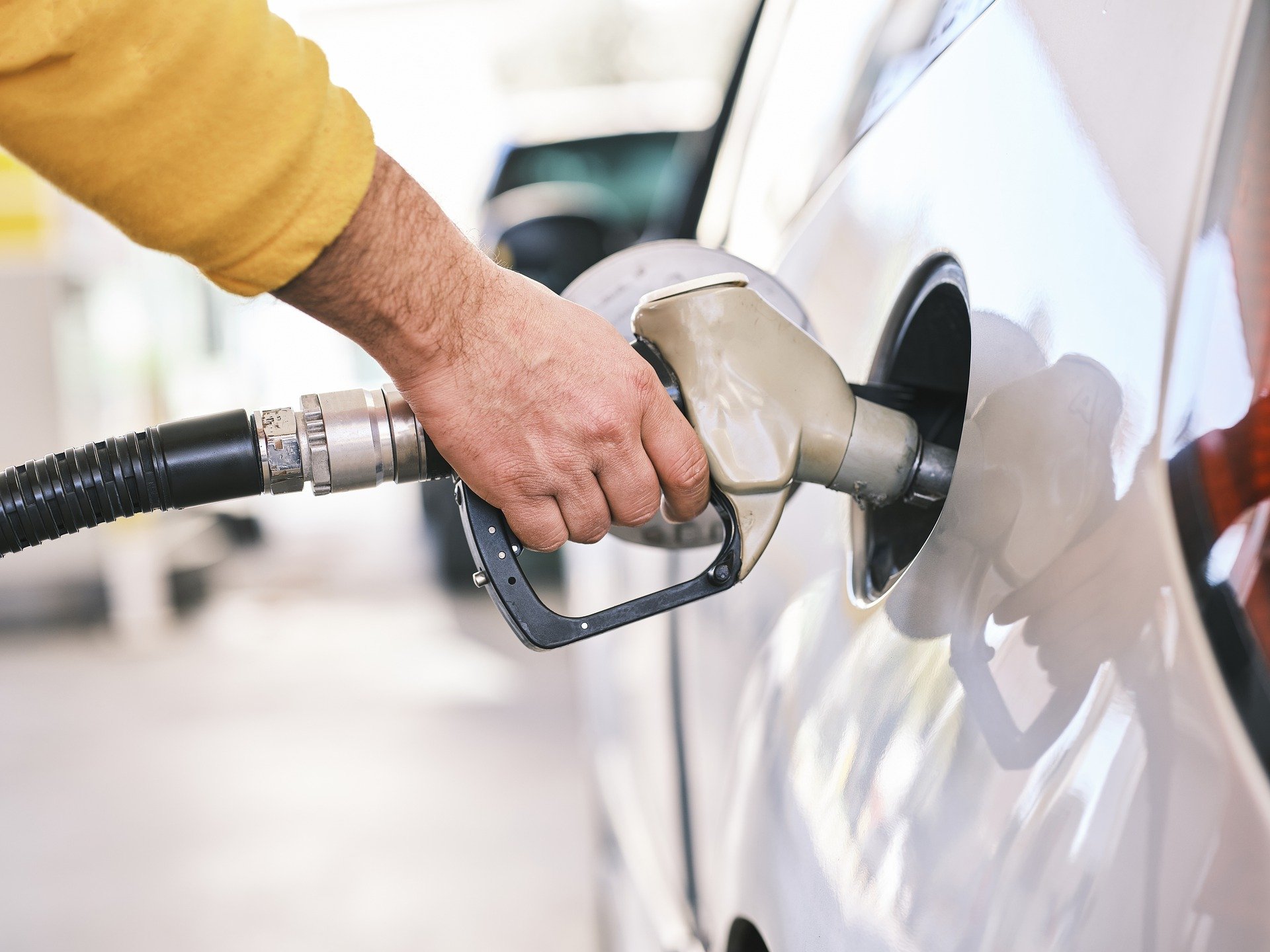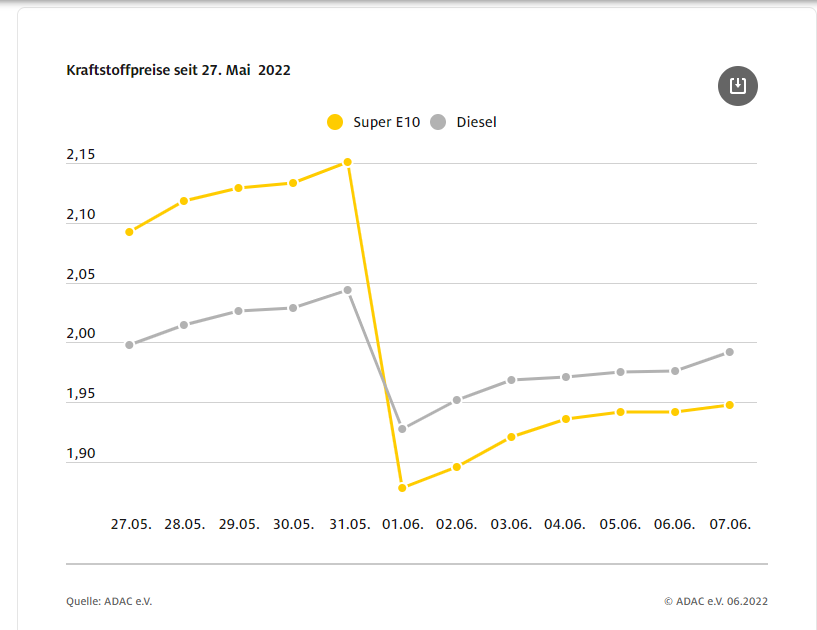
Companies use tricks to keep fuel prices near levels before tax cut
The government introduced a tax cut on fuels more than a week ago, but the prices of petrol and diesel oil have not changed significantly. Several government and opposition politicians urge an excess profit tax, as the rebates are now pocketed by oil companies.
There is a growing pressure on the oil industry in Germany. The prices of petrol and diesel oil have remained largely the same despite the tax cuts introduced by the government to stop price hikes. The measure is strongly criticised by many, with Marcel Fratzscher, the director of the German Institute for Economic Research (DIW), even calling them counterproductive.
„The tax cuts of fuels have failed, as they were doomed to fail.”
the economist stated. He opined that such tax cuts could only work „if there were real competition” on the market. It is noteworthy that the fuel market is dominated by a mere handful of oil companies and refineries, Fratzscher said, remarking that if those companies have large enough power, they can keep the rebates for themselves and not pass them on to consumers.
The Federal Cartel Office (BKartA) is incapable of tackling the problem for now. BkartA President Andreas Mundt told the German public media that the office could only intervene if oil companies fixed prices, but the competition authority has not found any sings of cartel agreements yet.
„If we take tax cuts out of the picture, fuel prices have gone through a steeper rise than the price of crude oil. It raises questions, of course,”
the president of the competition regulatory agency remarked.
German companies raised their prices significantly before the tax cuts, lowering them slightly when the measure was introduced, only to raise them back a few days later. With this trick, they kept the price drop to a minimum. Compared to the price level on 31 May, that is, before the cut in fuel taxes, super E10 petrol is 20.9 cents cheaper per litre, while the tax rebate is 35.2 cents. Diesel costs 6.8 cents less, while the tax rebate is 16.7 cents. The difference is the sum kept by the companies.

The association of petrol stations has accused oil companies of exploiting the current situation to boost their profits. The motoring association Allgemeiner Deutscher Automobil-Club also shares this view.
Prices are still very high. The cartel office, as a neutral body, should establish that the tax reduction is not passed on to consumers and that politicians must take action. Currently, taxpayers are financing the profits earned in the oil industry, with the sector clearly taking advantage of the crisis to maximise profits at the expense of consumers,
the car club says. However, the association of oil companies has rejected criticism, claiming that the tax reduction is passed on to consumers through discounts.
The government’s flawed measure sparked disputes within the ruling coalition, with politicians from the SPD and the Greens speaking out against the tax cuts. They believe that the government had chosen the wrong method to ease the burden on the population. Budget resources should be spent „differently and in a better targeted way” to lessen the burden on consumers, Green party MP Renate Kunast argued.
„This is a de facto refund that goes right into the pockets of petroleum companies and does not even have a controlling effect,”
the politician said.
Es ist nötig, dass wir das Ende vom #Tankrabatt diskutieren und es ist auch richtig, dass wir eine #Übergewinnsteuer diskutieren. https://t.co/nxrTl3Ws3L /TK
— Renate Künast (@RenateKuenast) June 7, 2022
„Petroleum companies should not be able to line their pockets with more money during the crisis,” Lars Klingbeil, SPD’s parliamentary group leader, told the press. Besides politicians from the SPD and the Greens, Jens Spahn, vice-chair of the parliamentary group of the opposition CDU-CSU alliance, also spoke out in favour of taxing excess profits.
The sharpest criticism of the government’s botched measure and impotence came from the opposition party Alternative fur Deutschland (AfD).
„The question may rightly arise as to what this federal government is capable of at all. Again, billions of euros in taxpayer money are being burnt – at least for citizens who have to drive to work every day and can barely make ends meet.”
Gestiegen, um zu fallen: #Spritpreisbremse der #Ampel verpufft!
Seit dieser Woche soll der steuerlich finanzierte #Tankrabatt greifen, allerdings zeigt sich schon jetzt: …https://t.co/wqsoD4XCjg #afd pic.twitter.com/mTRjmELt5d
— Alternative für 🇩🇪 Deutschland (@AfD) June 3, 2022

